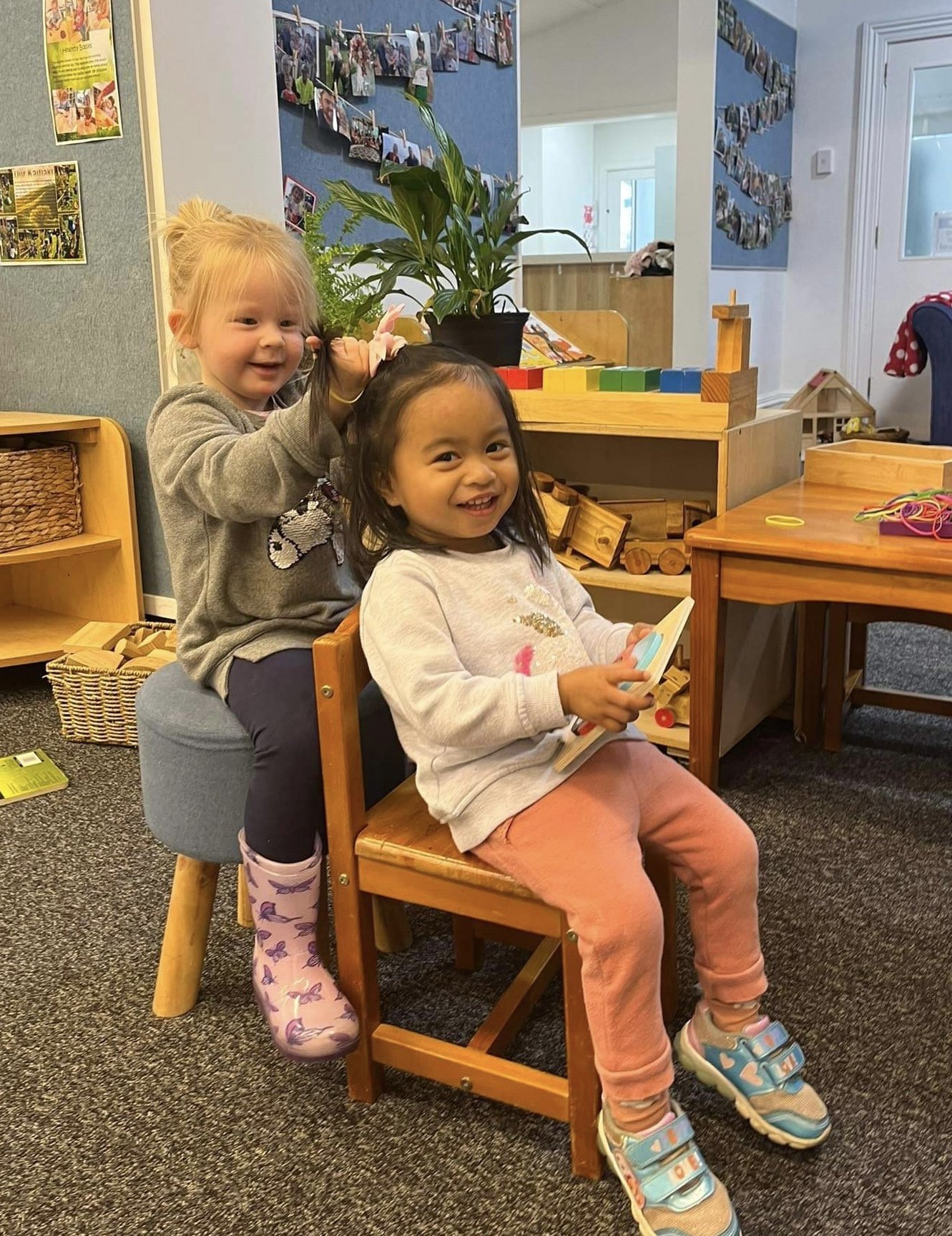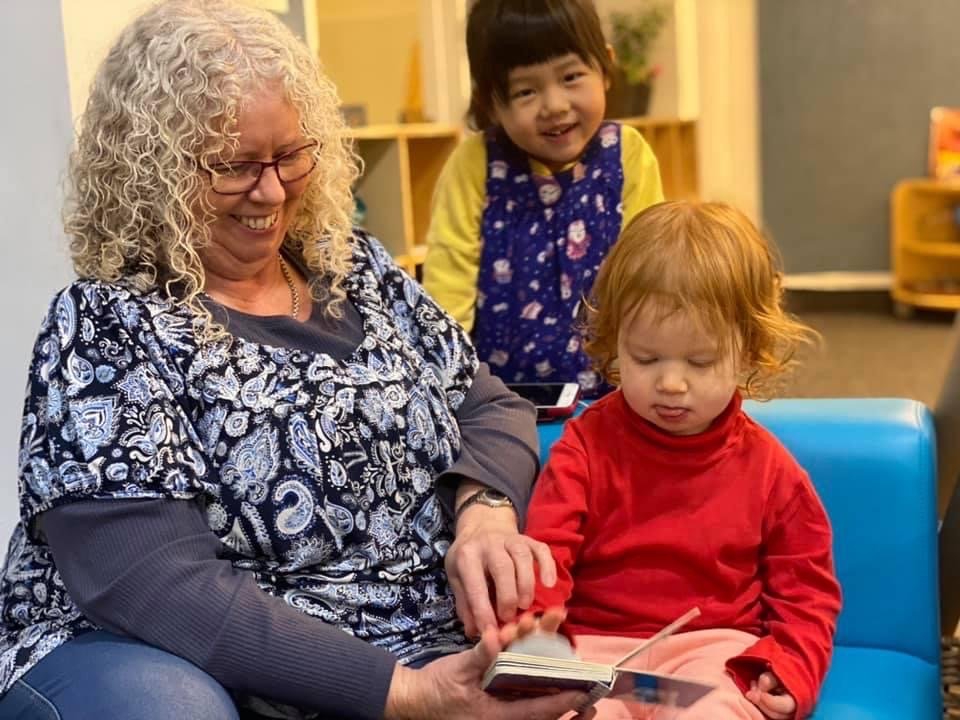Our Curriculum
Our centre’s learning framework is based on New Zealand Early childhood curriculum- Te Whāriki Te Ara Whānui, a national curriculum document for early childhood education (ECE), that can be it utilised for children from birth to school entry.
Underpinning Te Whāriki is the vision that children are competent and confident learners and communicators, healthy in mind, body and spirit, secure in their sense of belonging and in the knowledge that they make a valued contribution to society.
The whāriki or woven mat is used as a metaphor for the ECE curriculum, in which four curriculum principles are interwoven with four curriculum strands. Together, these principles and strands give expression to the vision for children that are at the heart of Te Whāriki.
Teachers in our centre weave together the principles and strands, in collaboration with children, parents, whanau and communities, to do our programme planning to create positive learning outcomes for children.
Te Whāriki is based on Four Principals:
Empowerment | Whakamana – The early childhood curriculum empowers the child to learn and grow.
Holistic Development | Kotahitanga – The early childhood curriculum reflects the holistic way children learn and grow.
Family & Community | Whānau tangata –The wider world of family and community is an integral part of the early childhood curriculum.
Relationships | Ngā hononga – Children learn through responsive and reciprocal relationships with people, places, and things.



Our Vision: Opening up a world full of possibilities
To provide our tamariki, quality care and education that builds a solid foundation enabling confident, caring young people who desire to experience a world full of possibilities
Our Philosophy
Manākitanga - Kindness
Manaakitanga is about creating a loving, supportive environment where every child’s mana is honoured, uplifted, and valued. At Deb’s Place:
We place the child at the heart of all we do, modeling respect, kindness, and compassion in everyday practice
Kaiako role‑model caring behaviours—sharing, guiding, and supporting one another—teaching tamariki to care for others and their environment through sustainability practices informed by kaitiakitanga
Through respectful words, thoughtful actions, and collective responsibility, we grow a centre where every child feels valued, supported, and empowered.
Whanaungatanga - relationships
Whanaungatanga means building relationships and a strong sense of belonging through shared experiences. At Deb’s Place:
We partner with whānau and the Addington community to nurture respectful, reciprocal relationships.
Cultural identity and language are integral—honouring Aotearoa’s bicultural foundations by weaving te reo Māori and children’s home languages and traditions into daily life
We invite tamariki to share whakapapa, pepeha, and family practices—enriching our community’s tapestry.
Whānau, kaumātua, and cultural experts join us to share karakia, waiata, and traditions, reflecting Te Whāriki’s strands of Whānau Tangata, Ngā Hononga, and Mana Whenua .
Through everyday greeting, open dialogue, and genuine interest, we create a centre that truly feels like whānau—where children grow in confidence, belonging, and cultural understanding. At Deb’s, te reo Māori and culturally rich practices are part of who we are, and how we learn and grow together.
Wānanga and Ako
Wānanga reflects our commitment to providing environments where tamariki feel safe, secure, and empowered to learn in their own way. At Deb’s Place:
Spaces are thoughtfully designed for exploration—whether independently or with peers—offering opportunities to question, imagine, and discover.
We honour diverse learning paths, recognising that every child’s journey is unique and valuable, and that knowledge grows from curiosity and engagement.
Ako captures the reciprocal nature of learning—we grow together through shared experiences. At Deb’s Place:
Kaiako and whānau share songs, crafts, foods, and stories from their cultures—going beyond tokenism to foster genuine, meaningful exchange.
Through collaborative experiences, tamariki build understanding, empathy, and cultural competence.
We create a safe secure environment that is supportive of growth and development. We acknowledge that learning can take many paths and there is value in all paths taken
Our environment is planned to allow children safe spaces to explore and opportunities and challenges that empower them to imagine, to theorise, to questions, to inquire, to discuss their ideas, to work alone or with their peers and to listen to the thoughts of others.
Community Engagement
At Deb’s Place, we cherish our vibrant Addington community and believe in learning beyond our walls. We regularly embark on excursions to local treasures like Addington Park, local schools, and nearby cafés, enriching our tamariki’s understanding of the world around them.
We are privileged to have whānau and community members join us, sharing their knowledge and traditions. These visits deepen our tamariki’s sense of belonging and connection, fostering a rich tapestry of shared experiences.
Through these community engagements, we are strengthening our collective identity and nurturing respectful relationships within our wider community.
Contact us
For more information or to book a visit contact us
info@debsearlylearning.com
(03) 338 4470






